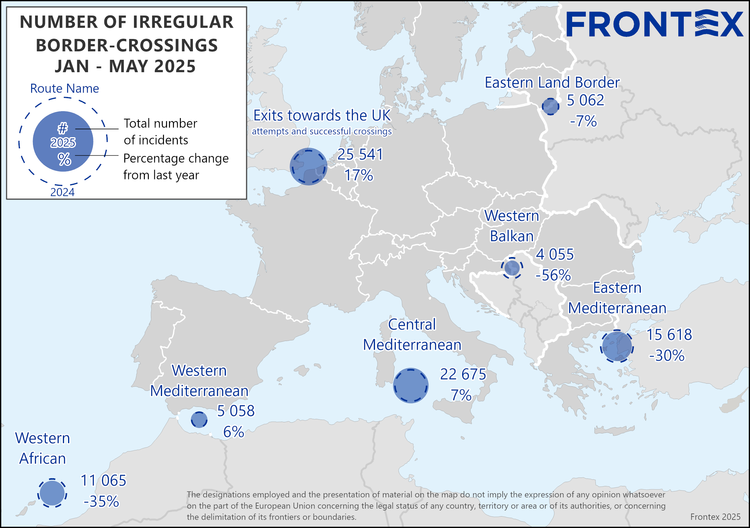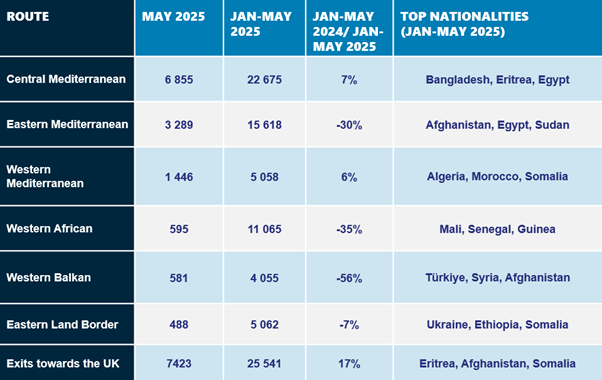Irregular border crossings into the European Union dropped
by 20% in the first five months of 2025, totalling 63 700, according to
preliminary data collected by Frontex*.
With over 3 300 officers
stationed along the EU’s external borders Frontex is working together with
national authorities to safeguard borders and save lives at sea.
Key Highlights:
- Central Mediterranean remains the busiest route
this year, accounting for one of every three arrivals into the EU.
- Western Balkans sees the steepest decline in
arrivals between January and May (-56%).
- Most frequently reported nationalities:
Bangladeshi, Afghan, and Malian.
In the Central Mediterranean,
22 700 irregular crossings were recorded in the first five months of 2025,
reflecting a slight increase (+7%) compared to the same period last year.
Libya remains the main country of
exit for migrants on this route, with a significant increase this year
offsetting an almost 90% decline in departures from Tunisia, as the Tunisian
authorities are stepping up their efforts to curb irregular migration.
The Eastern Mediterranean
was the second most active route in January-May, with 15 600 irregular
crossings, representing a 30% drop compared to 2024.
On the Western African route,
the number of arrivals fell by a third to almost 11 100. The main
nationalities on this corridor were Malian, Senegalese and Guinean.
This significant drop can be
attributed to multiple factors: stronger border controls and migration policies
in Mauritania, poor weather conditions, and enhanced cooperation between the EU
and countries of departure. Joint Spanish-Moroccan patrols have also played a
key role in disrupting smuggling activities near the Canary Islands.
Many risk their lives to reach
Europe, embarking on the perilous journey across the Mediterranean in
unseaworthy boats. The International
Organization for Migration estimates that in just the first five months of this
year alone, 651 people lost their lives at sea.
On the Channel route, the
number of migrants attempting to cross into the United Kingdom increased by 17%
compared to last year to 25 540.
Recent months have seen an uptick
in Channel crossings. Smuggling networks operating in the area are adapting,
using simultaneous departures to increase the number of successful crossings. This
tactic puts more lives at risk in an already dangerous stretch of water as it
hinders the search and rescue efforts of the national authorities.
* Note: The preliminary data
presented in this statement refer to the number of detections of irregular
border crossing at the external borders of the European Union. The same person
may cross the border several times in different locations at the external
border.

